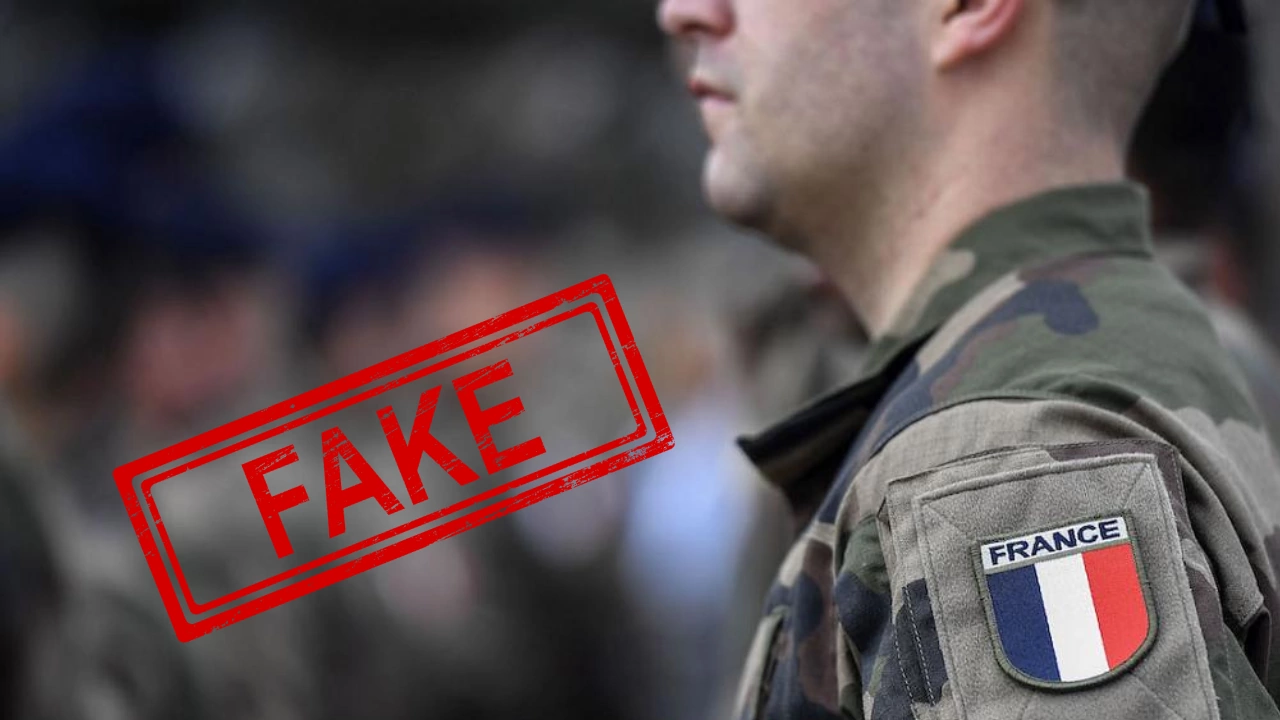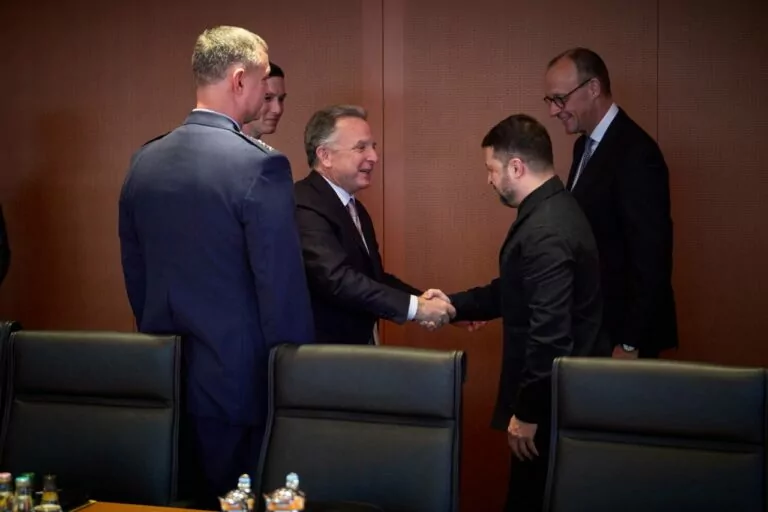After the Russian missile attack on Kharkiv on January 16, the Russian Ministry of Defense stated that the strike killed more than 60 French mercenaries. Later, the number of “killed mercenaries,” according to Russian media, increased to 130.
Our fact-checkers have figured out if it’s true. This is a translation of their work, see the original here.
What happened?
Russian authorities boosted this story massively, which is why we want to track what happened and what has been said chronologically.
On January 16, 2024, the Russian Defence Ministry reported (archive) that, in a Russian missile strike on January 16, Russians hit the base of temporary dislocation of foreign mercenaries. They note that 60 mercenaries were killed and more than 20 have been hospitalized.
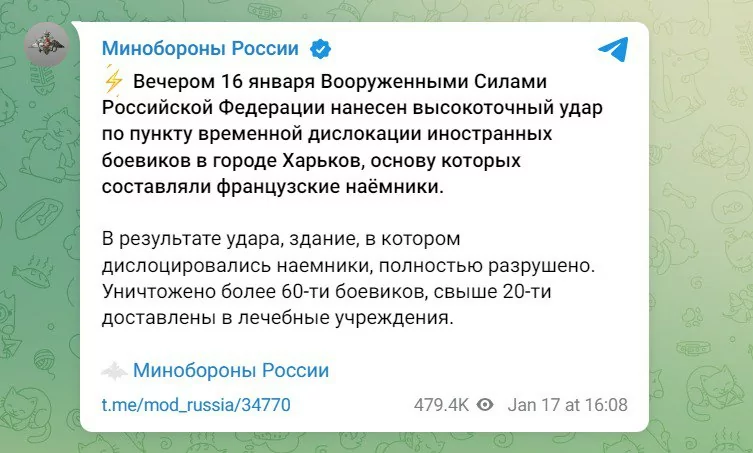
On January 18, 2024, Russian info-agency TASS reported (archive) that the Russian Foreign Affairs Ministry called the France’s representative in Russia in to discuss the situation connected to “destruction of a [center] of temporary dislocation of French mercenaries in Kharkiv by Russian troops.”
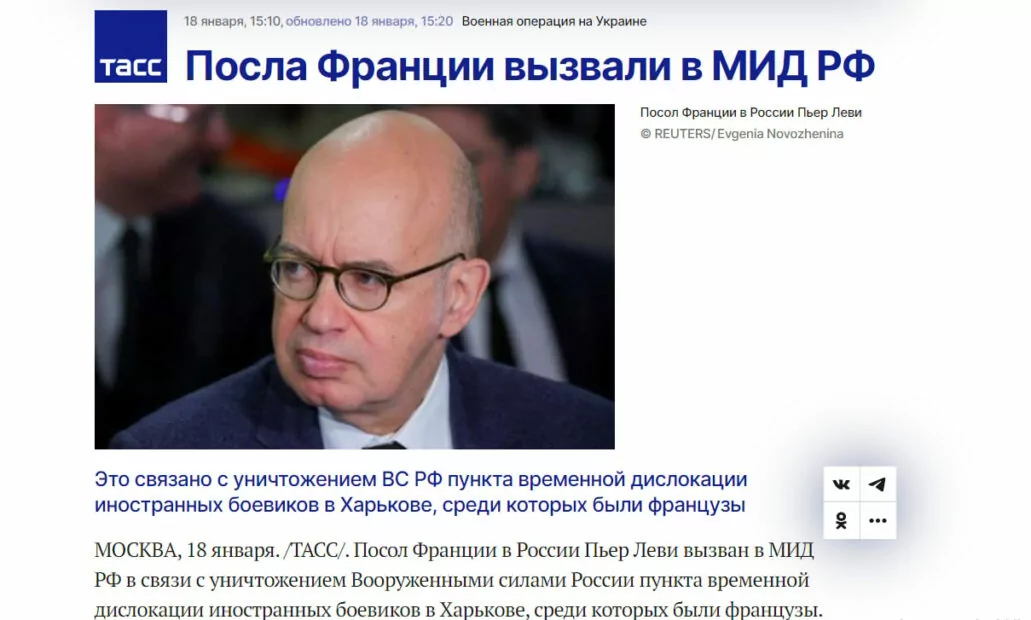
On January 22, at 9:33 a.m., Russian media RIA Novosti reported (archive) that French volunteers from the organization SOS Donbass provided them with a list of 13 French mercenaries who died in a Russian missile strike on Kharkiv.
Same day, at 4:18 p.m., the number of killed French mercenaries, according to the same media (archive), increased to 130.
“During the [combat] in Ukraine, 130 mercenaries from France have been eliminated, reports RIA Novosti source.”
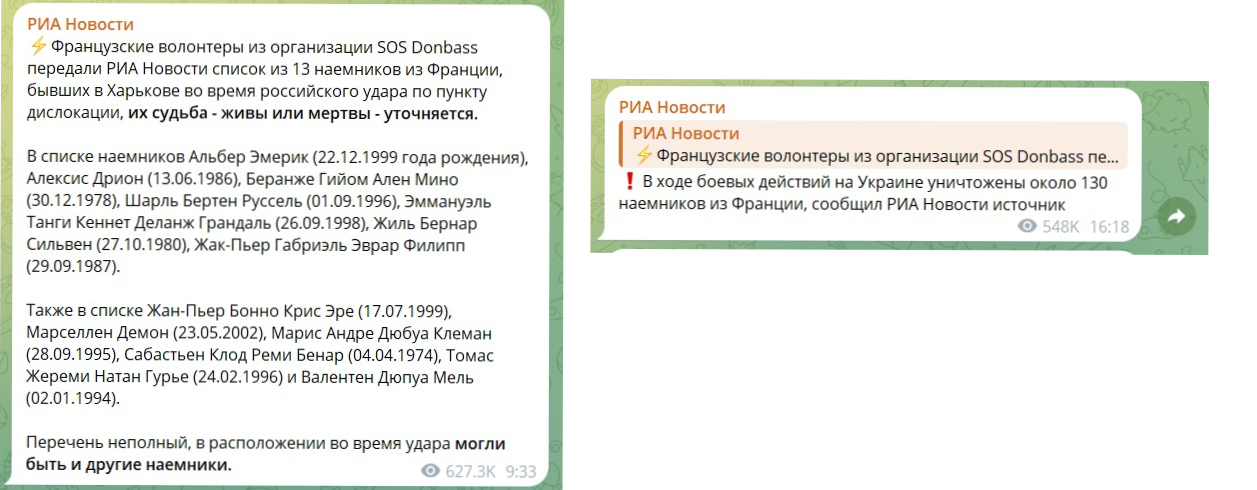
The news quickly spread in Russian online spaces. Telegram channel “Ukraina-ru” made a post (archive) with information about Alexis Drion, one of the “mercenaries” from the RIA’s list, who was supposedly killed during a missile strike.
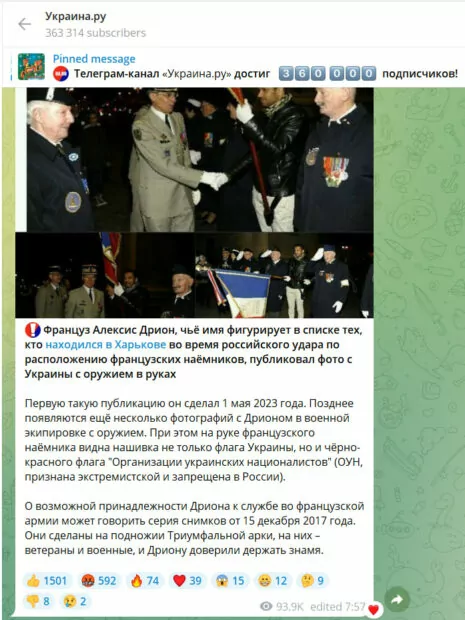
Analysis
Russian missile strike on January 16
Commenting on the Russian missile attack on Kharkiv on January 16, City Mayor Ihor Terekhov noted that two Russian missiles damaged 19 residential apartment buildings. Seventeen people were injured, 14 of them hospitalized, including one with severe injuries. The missile attack also damaged 14 cars.

Read more. In Photos: Russians Shelled Kharkiv at Night on January 16
Official reaction of French Foreign Affairs Ministry and French embassies to Russian statements
On January 18, 2024, the Ministry of Foreign Affairs of France responded to a request of French outlets, France 24 and AFP, and debunked not only death but the presence of so-called French mercenaries in Ukraine.
“France has no ‘mercenaries’ either in Ukraine or anywhere else, unlike some people,” said the Ministry of Foreign Affairs representative to AFP.
The Ministry also noted that “another clumsy Russian manipulation.” They said, “We don’t have to assign more significance to [this one] than to the previous ones or those that will happen in the future.”
We want to highlight that the website of the French Foreign Affairs Ministry posted one text on January 16, about the attack on Erbil.
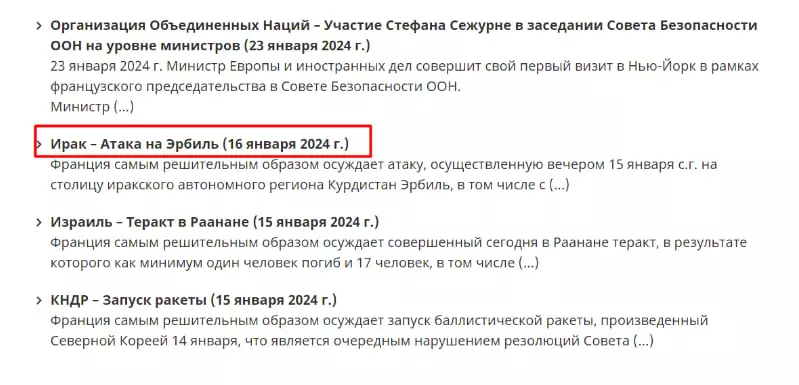
The French embassy in Russia didn’t react to the situation publically at all.
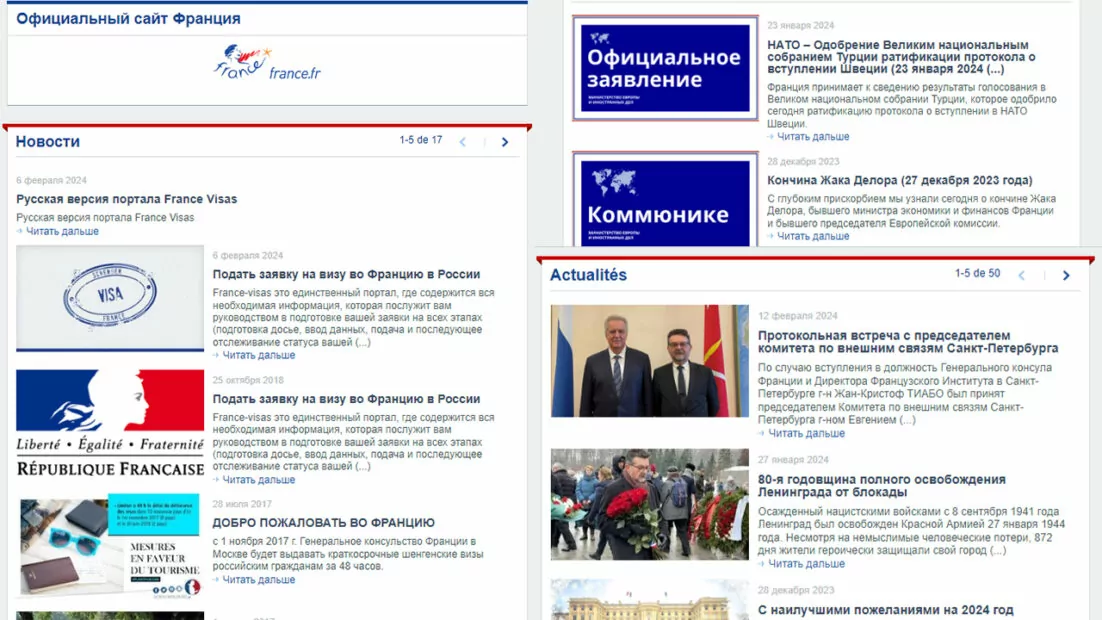
List of supposedly dead French mercenaries
After the “lists” of French mercenaries, Alexis Drion, whose name was among the dead, published a post on his Facebook page where he debunked the information about his death, calling it Russian disinformation. But then he deleted his post.
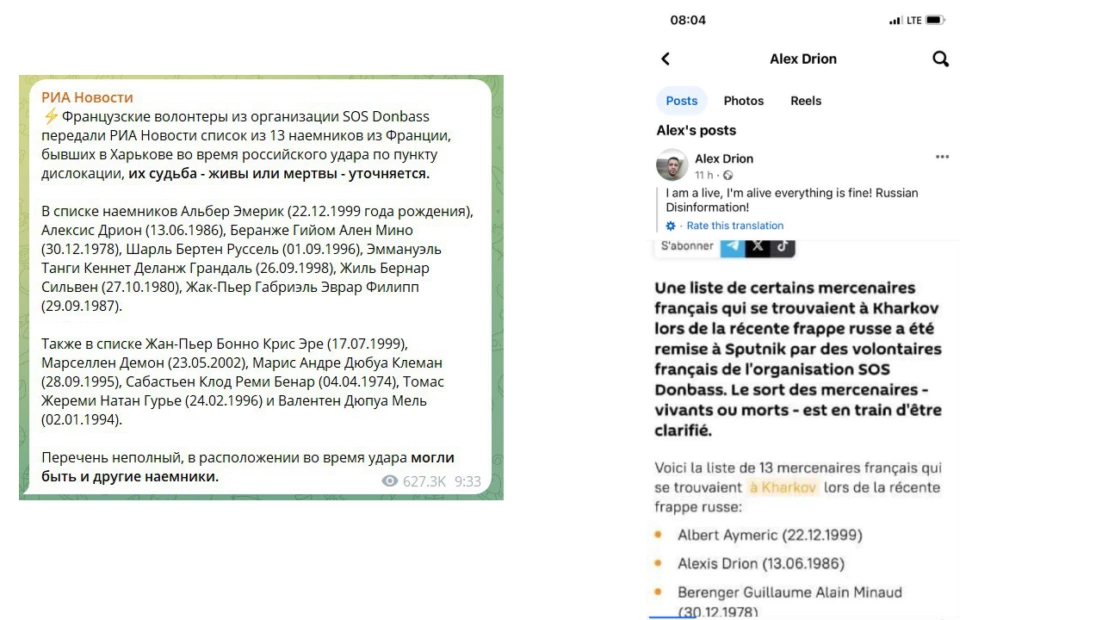
But on January 26, French outlet RFI released an article with Alexis’ comment. He debunked the information about his stay in Ukraine.
“On January 17, 2024, I was at Pays de la Loire in France; I am not dead, I am alive. Everything is going great… According to the information I have, no French people were injured during these missile strikes. That is Russian propaganda, [meant] to scare people or attempt to engage France in the conflict,” Drion said.
The RFI article mentions the name of another French man, Béranger Minaud, who also was on the list of “killed” mercenaries published by RIA Novosti. Béranger Minaud denied his death and pointed out that other people on the “list of dead French mercenaries” are also alive.
“I confirm that I wasn’t there back then [during the day Kharkiv was bombed — ed.] just because I returned to France a few months ago. In this list, there are others whom I don’t know well, but with whom I talk and who are really alive and who weren’t there [in Kharkiv — ed.], too,” Minaud said.
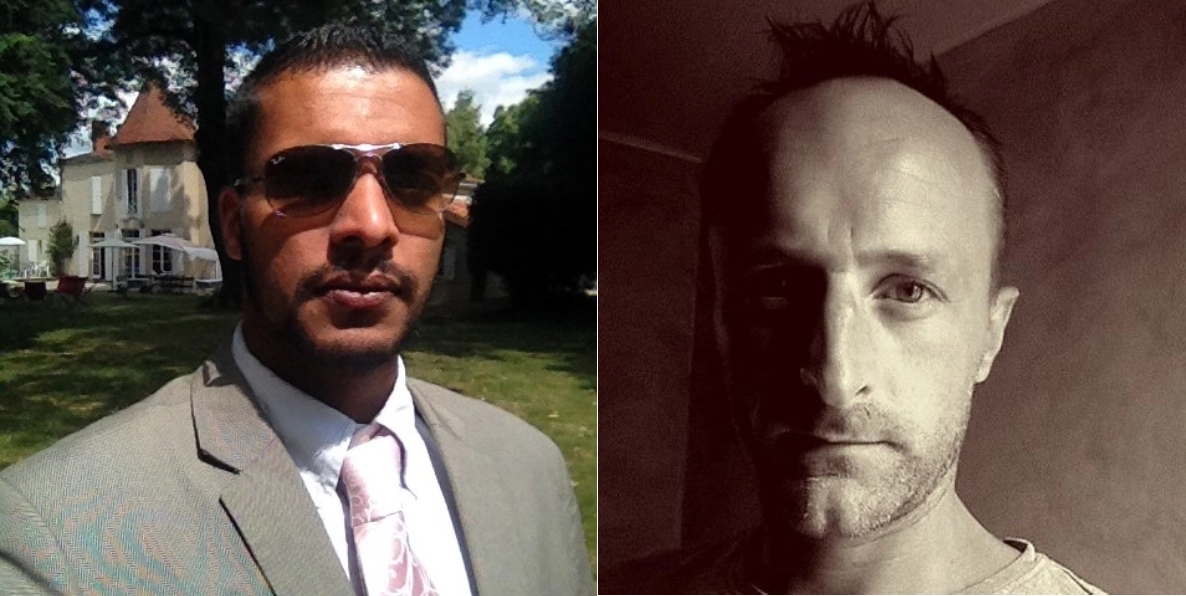
SOS Donbass
Because RIA Novosti said they obtained a list of dead French volunteers from the SOS Donbass organization, we decided to try to find it.
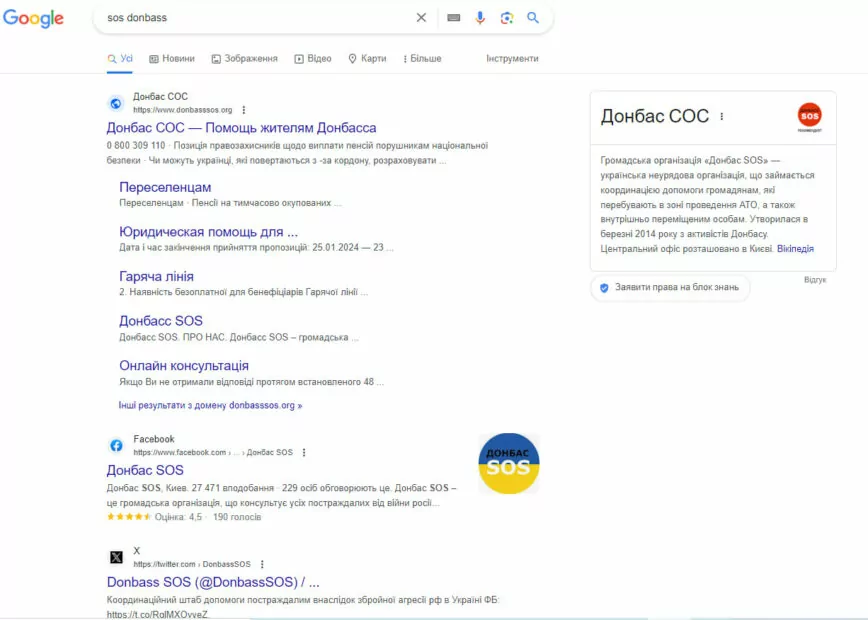
The Google search for SOS Donbass keywords didn’t result in much.
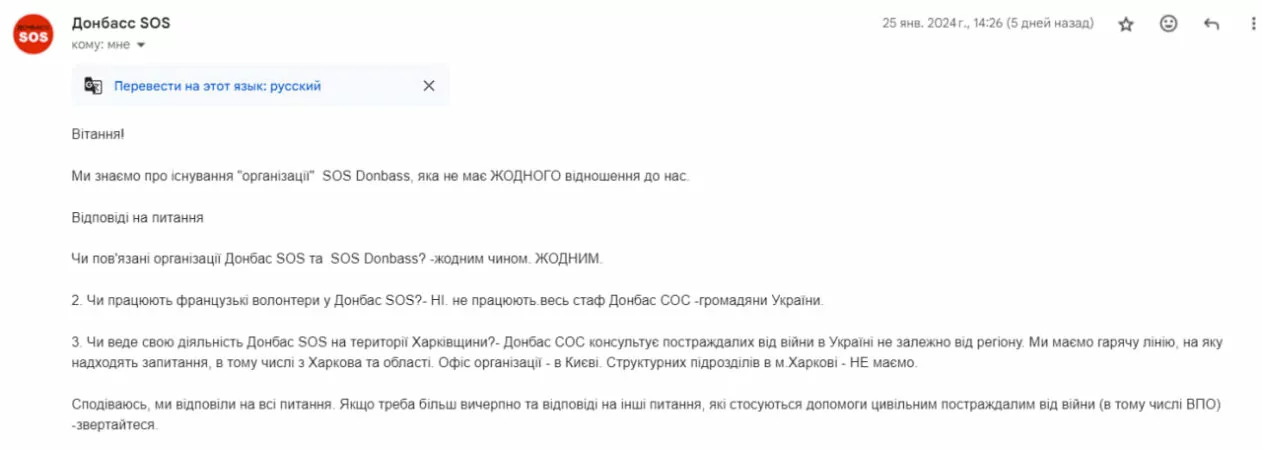
Instead, we found a Ukrainian organization called Donbas SOS. We assumed they were who RIA was referring to and asked them to comment on RIA Novosti’s statement. We received the following response:
“We know about the existence of the SOS Donbass “organization” that doesn’t have ANYTHING to do with us.
Are Donbas SOS and SOS Donbass organizations connected? – not at all. NOT AT ALL.
Do French volunteers work for Donbas SOS? – No, they don’t. All employees of Donbas SOS have Ukrainian citizenship.
Does Donbas SOS work on the territory of the Kharkiv oblast? – Donbas SOS consults those who suffered in the war in Ukraine with no regard for the region. We have a hotline, which [people use to ask] questions, including people from Kharkiv and [its region]. The organization’s office is located in Kyiv. NO structural departments [of Donbas SOS] exist in Kharkiv.”
We assume, a similar name was selected purposefully to discredit legitimate Ukrainian organizations.
How the narrative was spreading
Such an activity in spreading disinformation about France, often directed at the French audience, isn’t accidental. On January 16, Emmanuel Macron reported that France will give Ukraine 40 long-range missiles SCALP EG, and, on the same day, Russians massively shelled Kharkiv and consequently spread the statements about French mercenaries. On January 18, Ukrainian Minister of Defence Umierov said that France will transfer six CAESAR howitzers to the Armed Forces in the near future and is capable of manufacturing another 72 of those for Ukraine this year.

On January 26, in a press release, the French MoD said they had uncovered a “coordinated maneuver of Russia” [intended] to spread false information about France.
“Faced with the intensification of French military aid to Ukraine, we expect this [maneuver] of Russian falsehood to continue: we condemn it and strengthen our system of monitoring of these manipulations,” said the head of the [French] ministry, Sébastien Lecornu.
In conclusion, the information about supposedly French mercenaries was consciously fabricated to destabilize French-Ukrainian relationships.
Conclusion: Fake
Authors: Nazar Hlamazda, Yuliana Topolnyk.

